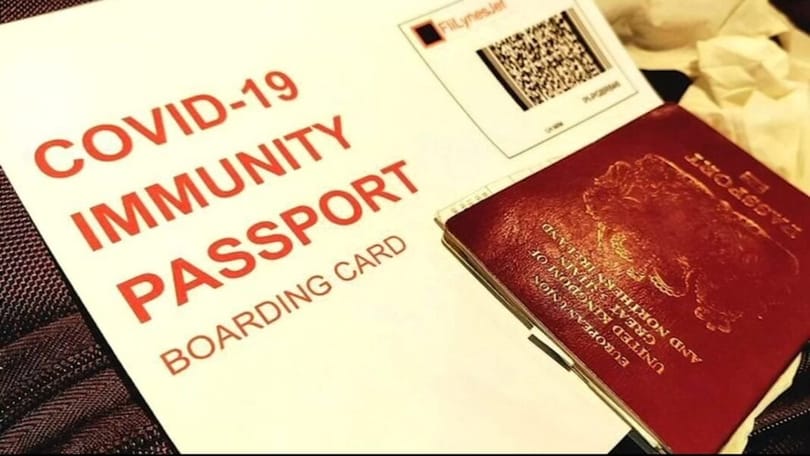- UK citizens oppose the idea of ‘vaccine passports’
- ‘Vaccine passport’ would allow Brits who have been vaccinated against COVID-19 to regain a certain level of freedom
- ‘Vaccine passport’ key to the ability to travel freely
A constantly growing petition demanding that the United Kingdom’s government not introduce the controversial ‘Covid-19 vaccine passport’ scheme was heading towards 40,000 signatures today, amid persistent reports that such a system was being actively developed for Brits’ travel abroad.
As of yesterday, the petition calling on the government officials to commit against implementing a controversial plan has received more than 37,000 signatures, but Prime Minister Boris Johnson’s cabinet refuses to rule the idea out.
A ‘vaccine passport’ would allow UK citizens and legal residents, who have been vaccinated against the Covid-19, to regain a certain level of freedom – including the ability to travel – that would be prohibited to others, who have not been vaccinated.
Last month, British vaccine-deployment minister Nadhim Zahawi announced that there were “absolutely no plans” for ‘vaccine passports’, as concerns mounted that documents would need to be presented before entering certain establishments. The minister also declared that mandatory vaccination itself was “discriminatory and completely wrong.”
According to the petition, E-vaccination status certificates or ‘immunity passports’ could be used “to restrict the rights of people who have refused a COVID-19 vaccine, which would be unacceptable.”
The petition concluded that the government “must be completely clear to the public” about its intentions regarding such passports, which it said would “undoubtedly affect societal cohesion” and the economic recovery of the country.
Since the petition has received over 10,000 signatures, the British government will have to respond, according to the official UK Parliament and Government Petitions policy. If it receives 100,000 signatures, the matter will be debated by MPs. However, parliamentary debates are uncertain, these days, due to the ongoing pandemic.
Previous petitions against restrictions for unvaccinated Brits have proved immensely popular. One last year, which called generally on the government to “prevent any restrictions” on those who refuse vaccination, received 337,137 signatures and was debated in parliament in December.
“There are currently no plans to place restrictions on those who refuse to have any potential Covid-19 vaccine,” the government responded at the time, adding, however, that it “will carefully consider all options to improve vaccination rates, should that be necessary” – effectively refusing to rule the idea out completely.
The government response to a more recent petition in January proved similarly concerning for Brits against a vaccine passport, with the government saying it was “exploring ways” in which technology could be utilized to more safely open workplaces and other services to the public.
Various other petitions against COVID-19 passports have been rejected, given that so many have already been filed.
IHE Ị GA-Ewepụ na edemede a:
- The government response to a more recent petition in January proved similarly concerning for Brits against a vaccine passport, with the government saying it was “exploring ways” in which technology could be utilized to more safely open workplaces and other services to the public.
- “There are currently no plans to place restrictions on those who refuse to have any potential Covid-19 vaccine,” the government responded at the time, adding, however, that it “will carefully consider all options to improve vaccination rates, should that be necessary” – effectively refusing to rule the idea out completely.
- As of yesterday, the petition calling on the government officials to commit against implementing a controversial plan has received more than 37,000 signatures, but Prime Minister Boris Johnson's cabinet refuses to rule the idea out.























